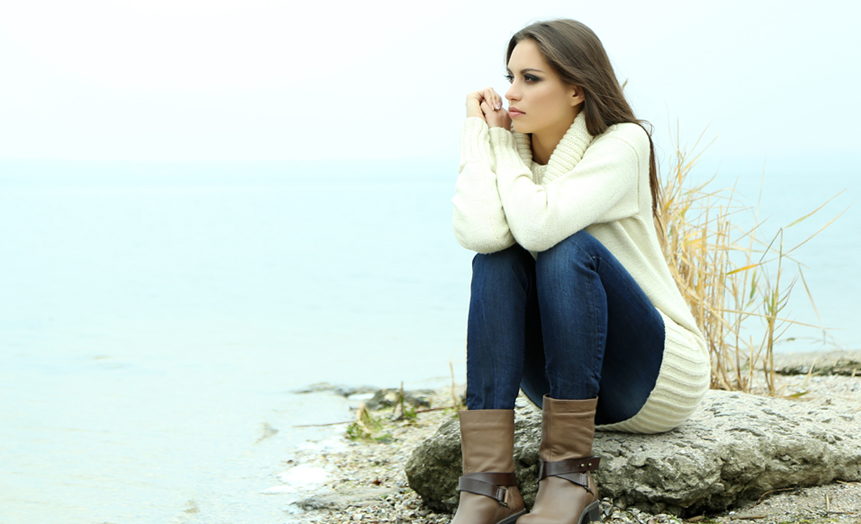Vulnerability Is Not Weakness: How Becoming Vulnerable Can Transform your Relationships
American society values independence and strength. We prize those who stand on their own two feet, do not accept help from others, and seem to have everything figured out. Unfortunately, this approach leaves many people feeling like they must maintain a facade of strength while struggling with their own inner turmoil. Rethinking this need to build defenses against our inner selves allows us to become vulnerable in a way that can transform our worlds.
What Is Vulnerability?
The Oxford English Dictionary defines vulnerability as “susceptible to physical or emotional attack or harm” or “a person in need of special care, support, or protection because of age, disability, or risk of abuse or neglect.” In keeping with this definition, our society considers those who are vulnerable to be weak or powerless.
However, a better definition of vulnerability is that it is a state in which we live without defensiveness. Many of us have built up elaborate defenses to keep others out and to protect ourselves from perceived harm. Sadly, these defenses also serve to prevent us from living our most authentic lives.
Your spirit or life force is precious to you (as it should be!). As you have gone through life, you may have experienced situations in which your spirit felt as though it was under attack. Perhaps your mother told you that you would never amount to anything. Or your first boyfriend made fun of you for being chubby. Or maybe a coworker said that your interpersonal style is too abrasive.
These attacks on your true self cause you to put up barriers to protect yourself from harm. Think of your spirit existing in a beautiful open meadow when you were a child. Over time, you build a small shelter for it. As time went on, you erected a fortified castle with impenetrable walls, a moat, and guards in the watchtowers. Of course, this castle protects your self from harm from others. Your spirit is safe within, keeping it from coming to harm. At the same time, though, it prevents you from coming into contact with the outside world. Friends, family, and loved ones are unable to truly connect with you. They must content themselves with shouting from the other side of the moat.
When we talk about becoming more vulnerable, we mean that it is time to break down those walls. Dismantling the defenses we have lived with for so long is a terrifying prospect. However, in the end, it will allow us to live more authentically in this world.
To be Vulnerable is Not To Be Weak: Reframing Vulnerability in Our World
Vulnerability is not a popular word. It evokes images of weakness and others taking advantage of you. However, true vulnerability is actually a strength. To be truly vulnerable is to be willing to strip ourselves of unnecessary defenses, preparing ourselves to meet others with true authenticity.
It is critical to note that this does not mean you should become a gullible person who is easy to take advantage of! When reframing vulnerability as strength, we mean that you will become a person who does not hesitate to jump in with both feet. Vulnerability means being willing to risk yourself and permit yourself to be emotionally exposed. This may sometimes result in heartache. At the same time, however, you open yourself up to the potential for immense joy and exultation. To be vulnerable is to live without fear.
Vulnerability in Your Relationship with Yourself and with Others
Only by being vulnerable can we truly connect with others. Think about the best relationship you have ever had, whether that is with a friend, a family member, or a romantic partner. Did you hide a piece of yourself from that person? Or were you able to let yourself free, sharing even the darkest and most personal aspects of your self?
Vulnerability begins with radical honesty. Begin by being vulnerable in your relationship with yourself. This takes incredible self-compassion. Extending love to yourself may feel scary, as we are used to thinking of ourselves as unlovable or undeserving of compassion. Begin by thinking about the qualities that make you “you.” Do not let yourself dwell on how others view you. Simply sit with your own thoughts and feelings about your own true self. Then, practice thanking yourself for each quality, even those that you have previously viewed as weaknesses or sources of shame. Forgive yourself for times in which you have not lived up to your true potential, and vow to live more authentically in the future.
To become more vulnerable in your relationships with others, you must become unafraid of feeling. Too often, we seek to protect ourselves in relationships by keeping a part of ourselves back. We build up walls that prevent us from truly feeling the love, anger, hurt, joy, solace, or creativity that come from relationships with others.
Cultivate vulnerability in your relationships with others by taking small steps toward authenticity. Ask a loved one what they are thinking. Tell them what you are thinking, even if it seems stupid or embarrassing to you. Let go of your worries about others judging you; you cannot control what they think, only what you do. Do not fear your imperfections. We are all imperfect.
Only by becoming vulnerable can we reach toward our true goals, create authentic relationships, and live up to the true potential within each of us.
XOXO Tina
Source
http://www.oxforddictionaries.com/us/definition/american_english/vulnerable





